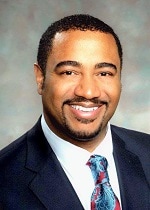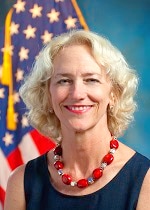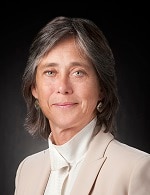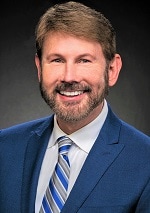Organization Chart
Updated March 22, 2024

OFFICE OF THE DIRECTOR
Karen Hacker, MD, MPH

Dr. Hacker is the Director of CDC’s National Center for Chronic Disease Prevention and Health Promotion (NCCDPHP), a position she assumed in August 2019. NCCDPHP has an annual budget of more than $1.4 billion and more than 1,000 staff members dedicated to preventing chronic diseases and promoting health across the life span.
Dr. Hacker leads an executive team that sets the strategic direction for the center’s portfolio, which focuses on:
• Surveillance and epidemiology to move data into action.
• Policy and environmental improvements to support health and healthy behaviors.
• Health care system collaboration to strengthen delivery of clinical and other preventive services.
• Links between community and clinical services to improve self-management of chronic conditions and enhance quality of life.
From 2013 to 2019, Dr. Hacker served as Director of the Allegheny County Health Department in Pennsylvania, where she was responsible for a population of 1.2 million residents in 130 municipalities, including Pittsburgh. Under her leadership, the Department achieved national public health accreditation in 2017. Dr. Hacker also launched the Live Well Allegheny initiative, aimed at reducing smoking, obesity, and physical inactivity.
Previously, Dr. Hacker was the Senior Medical Director for Public and Community Health at the Cambridge Health Alliance in Massachusetts, where she oversaw the Department of Community Affairs and directed the Population Health Agenda for achieving cost-saving health care reform. Between 2002 and 2013, she held a variety of leadership roles at the Cambridge Public Health Department and the Institute for Community Health (both part of the Cambridge Health Alliance).
Dr. Hacker received her MD from Northwestern University School of Medicine and her MPH with honors from Boston University School of Public Health.

Gregory Crawford, PhD, MSPH

Dr. Crawford is the Deputy Director for CDC’s National Center for Chronic Disease Prevention and Health Promotion (NCCDPHP). He supports the center’s coordinated, collaborative approach to investing its resources, working across divisions and programs and with grantees and partners to offer a more comprehensive, seamless approach to advancing population health. Before joining NCCDPHP, Dr. Crawford was Deputy Director in the Center for Surveillance, Epidemiology, and Laboratory Services’ Division of Laboratory Systems (DLS). He led DLS’s efforts to obtain approval for a cost-recovery model for CDC’s biorepository to ensure samples, specimens, and services meet quality standards and customer demands. He also provided oversight and management of DLS’s $31 million budget, including a major interagency agreement with the Centers for Medicare & Medicaid Services and a $105 million cooperative agreement with the Association of Public Health Laboratories that’s used CDC-wide. Dr. Crawford started his CDC career in 2001 at the National Center for Environmental Health, where he served in dual capacities as a Health Scientist and a Public Health Advisor. In 2006, he was selected as the Deputy Chief for the Air Pollution and Respiratory Health Branch in the Division of Environmental Hazards and Health Effects. Dr. Crawford also served in other leadership and management positions at CDC, including as the Deputy Director for the Office of Grants Services (OGS) in CDC’s Office of Financial Resources (2013 to 2020). In OGS, he was responsible for all financial aspects of the $21 billion annual budget. Along with the Director of OGS, he oversaw more than $5 billion in awards to state and local health departments, territories, community-based and tribal organizations, and international organizations.

Dee Wetterhall

Ms. Wetterhall is the Management Officer in CDC’s National Center for Chronic Disease Prevention and Health Promotion (NCCDPHP). She is responsible for planning, organizing, and directing the day-to-day administrative operations of NCCDPHP and serves as principal advisor to the Director on all matters related to administrative program planning and resources management. Previously, Ms. Wetterhall was Deputy Director in the Division of Reproductive Health, where she helped guide the division’s promotion of optimal and equitable health across its three priority areas of women’s reproductive health, infant health, and pregnancy health. During her more than 30 years with the agency, Ms. Wetterhall has provided expertise to a number of CDC programs, particularly in the areas of fiscal and human resources management, administration, and operations.
Sean Cucchi, MHA

Mr. Cucchi is the Associate Director for Planning, Evaluation, and Legislation for CDC’s National Center for Chronic Disease Prevention and Health Promotion (NCCDPHP). He is responsible for the policy agenda for the center, which has nine divisions and offices and a budget of about $1 billion. Mr. Cucchi most recently worked as the Legislative and Partnership Team Lead in the Office of Planning, Evaluation, and Legislation. Before joining CDC, he was the Chief of Planning and Fiscal Policy for the Georgia Department of Community Health, managing health policy and the budget for the agency responsible for Georgia’s Medicaid, State Children’s Health Insurance Program, and state employee health benefit programs. He also served as Policy Coordinator in the Governor’s Office of Planning and Budget, with responsibility for developing policy and budget recommendations for Medicaid, Public Health, and Mental Health programs for Georgia’s governors. Mr. Cucchi has an MHA from the School of Public Health at the University of North Carolina at Chapel Hill.
Gabbi Promoff, MA

Ms. Promoff is the Associate Director for Communication Science in the Centers for Disease Control and Prevention’s (CDC’s) National Center for Chronic Disease Prevention and Health Promotion (NCCDPHP), a position she assumed in 2016. She oversees the communication portfolio for NCCDPHP, which has nine divisions and offices, more than 1,000 staff members, and a budget over $1 billion. Ms. Promoff sets the strategic direction for the center’s internal and external communication efforts. Ms. Promoff joined CDC in 2005, working in NCCDPHP’s Office on Smoking and Health (OSH). She served as OSH’s Associate Director for Policy, providing expertise and strategic direction on tobacco control policy. Ms. Promoff led the earned media efforts around OSH’s Tips From Former Smokers®, the first-ever paid national tobacco education campaign, which profiles real people who live with serious long-term health effects from smoking and secondhand smoke, and led the release of several seminal Surgeon General Reports on tobacco. Ms. Promoff has actively supported CDC’s assistance in public health emergencies, including providing communications support for the agency’s Ebola, EVALI, and COVID-19 responses. Before joining CDC, Ms. Promoff worked at Golin, providing social marketing expertise for tobacco prevention and control movements to more than 10 states, as well as for the Truth Initiative’s truth® campaign. Ms. Promoff received an MA from George Washington University School of Political Management and graduated Magna Cum Laude from Emory University.
Angela Green-Phillips, MPA

Ms. Green-Phillips is the acting diversity, equity, inclusion, accessibility, and belonging officer in the National Center for Chronic Disease Prevention and Health Promotion (NCCDPHP). She oversees the center’s efforts to develop and support an empowered and high-performing workforce that thrives in a culture of mutual acceptance and trust, where every employee recognizes and embraces our differences and experiences satisfaction, inclusion, and belonging. Ms. Green-Phillips is NCCDPHP’s deputy management officer and will continue to assist the Management Activity Office with employee relations and labor relations activities as well as other high-level administrative services. Ms. Green-Phillips previously served as Deputy Director for the Division of Diabetes Translation and as Deputy Director for the Division of Community Health. In her diverse, 32-year career at CDC, she has served as a policy and partnerships team lead, a policy analyst, and a project officer, the latter of which provided the transformative opportunity to work with and travel to communities in the U.S.-affiliated jurisdictions in Micronesia. Ms. Green-Phillips joined CDC in 1991 as a Presidential Management Intern (PMI). She credits her PMI developmental experiences, as well as CDC’s supportive environment of PMIs, with helping prepare her for later professional opportunities and challenges. Ms. Green-Phillips earned her MPA from the Lyndon Baines Johnson School of Public Affairs, University of Texas at Austin.
* Diversity, Equity, Inclusion, Accessibility, and Belonging

Divisions

Division of Adolescent and School Health
Kathleen Ethier, PhD, Director

Dr. Ethier is the Director of CDC’s Division of Adolescent and School Health (DASH) in CDC’s National Center for Chronic Disease Preventions and Health Promotion. Dr. Ethier brings a wealth of public health experience and leadership in addressing health issues of youth and women, with a focus on HIV, STDs, and teen pregnancy, as well as supporting program improvement, strategic programs, and monitoring and evaluation. She most recently served as the Director of CDC’s Program Performance and Evaluation Office, where she contributed to advancing CDC program strategy, performance measurement, and evaluation. Prior to joining CDC, Dr. Ethier spent 6 years on the research faculty at Yale University working on studies of HIV, STDs, and unplanned pregnancy prevention among women and adolescents. In 1999, she joined CDC as a Senior Scientist in the Division of STD Prevention to lead the development and evaluation of interventions to prevent HIV, STDs, and teen pregnancy. She has served in a variety of leadership and management roles at CDC, including Acting Director of the Financial Management Office and the Division of Oral Health, as well as lead for the Adolescent Health Goal Team. Dr. Ethier’s research has included psychosocial, behavioral, organizational and clinical factors related to women’s health, maternal health and adolescent sexual and reproductive health. She has authored or coauthored numerous articles and book chapters for peer-reviewed publications. Dr. Ethier earned her PhD in social psychology from the Graduate Center of the City University of New York.
Melinda Jordan, CPH, Deputy Director

Ms. Jordan is the Deputy Director of CDC’s Division of Adolescent and School Health (DASH) in CDC’s National Center for Chronic Disease Prevention and Health Promotion (NCCDPHP). Ms. Jordan started her career at CDC in 1991 as a Disease Intervention Specialist (DIS) field assignee in Lauderhill, Florida. She further worked as a DIS in Chicago, Illinois, and a Special Projects Coordinator in Washington, DC, before being transferred to CDC’s National Center on Birth Defects and Developmental Disabilities (NCBDDD) in 1998. Over the next 20 years, she worked in various centers, including some whose names may have changed: the National Center for Injury Prevention and Control, National Immunization Program, Office of Workforce and Career Development, Coordinating Office of Terrorism Preparedness and Emergency Response, Financial Management Office, and NCCDPHP in varying roles to include a project officer, team lead, branch chief, program director, and acting division deputy. Throughout that time, she was involved in several programs such as Healthy Communities, Communities Putting Prevention to Work, and Community Transformation Grants. She also helped coordinate the first Sexual Violence Prevention Conference in 2000. In 2005, Ms. Jordan led the Public Health Prevention Specialist fellowship program. Eventually, she made her way back to NCBDDD in the Disability and Health Promotion Branch, where she worked with major partners like the Special Olympics. She attended the Special Olympics Games in Seattle, Washington, and was able to help with basic vision screening. Ms. Jordan earned a BA in psychology from Clark Atlanta University and a certificate in public health from Johns Hopkins University. She is currently completing her PhD in public health at Walden University.
Division of Cancer Prevention and Control
Lisa C. Richardson, MD, MPH, Director

Dr. Richardson is the Director of the Division of Cancer Prevention and Control (DCPC) in CDC’s National Center for Chronic Disease Prevention and Health Promotion, where she provides leadership and direction for all scientific, policy, and programmatic issues related to four national programs. Her public health service includes the following: medical director for the National Breast and Cervical Cancer Early Detection Program (1997–1998); medical officer in CDC’s Division of Blood Disorders (1998–2000) and later the division director; faculty member at the University of Florida in Medical Oncology working with the Florida Cancer Data System funded by CDC’s National Program of Cancer Registries (2000–2004); medical officer in the DCPC’s Epidemiology and Applied Research Branch (2004); and Team Lead for the Scientific Support and Clinical Translation Team supporting the National Comprehensive Cancer Control Program (2006–2009). From 2010 to 2013, Dr. Richardson was DCPC’s Associate Director for Science and helped set scientific priorities to maintain integrity in public health activities. Dr. Richardson received her MD from the University of North Carolina at Chapel Hill and her MPH from the University of Michigan School of Public Health.
Netta Apedoe, MPH, Deputy Director

Ms. Apedoe is responsible for the development of emerging initiatives, providing operational and managerial leadership, and assisting with the implementation of strategic priorities of the division.
Division of Diabetes Translation
Christopher S. Holliday, PhD, MPH, MA, FACHE, Director

Dr. Holliday is Director of the Division of Diabetes Translation (DDT) in CDC’s National Center for Chronic Disease Prevention and Health Promotion, where he provides leadership and strategic direction to the science and programs conducted in DDT to prevent type 2 diabetes, prevent diabetes complications, reduce health disparities, and improve the health of all people with diabetes. Before joining CDC in 2021, Dr. Holliday was with the American Medical Association (AMA), where he served as Director, Population Health and Clinical-Community Linkages, Improving Health Outcomes. He led AMA’s landmark engagement with YMCA of the USA, under a Center for Medicare & Medicaid Innovation demonstration grant that facilitated Medicare coverage for the National Diabetes Prevention Program (National DPP) lifestyle change program. Throughout his career, Dr. Holliday has focused on improving outcomes for populations disproportionately impacted by chronic and mental health conditions, addressing root cause social and structural determinants of health, including access to care. Before joining AMA, Dr. Holliday was Director of the Adler School of Professional Psychology’s National Center of Excellence and served as the chief executive officer for a national organization promoting access to care for the uninsured and underinsured. For a dozen years before that, he held progressive leadership positions in the Georgia Department of Public Health, heading chronic disease prevention and health promotion initiatives. After beginning his academic career at Northwestern University (BA, Psychology), Dr. Holliday received an MPH in Health Policy and Management at Emory University’s Rollins School of Public Health and trained as a community psychologist and applied research scientist, earning an MA and a PhD in community psychology at Georgia State University. He is board-certified in healthcare management as a Fellow of the American College of Healthcare Executives.
Donald Betts, MPA, Dep. Director

Mr. Betts is the lead management official for the division, and is responsible for planning and directing financial management and business operations, human resource management, and strategic planning. Mr. Betts has over 20 years of CDC experience, working in policy and program evaluation, adolescent and school health promotion, and health promotion for children and adults with disabilities. Mr. Betts was previously the Deputy Director for CDC’s Division of Human Development and Disability. During this time, he helped establish the first ever Associate Director for Disability Inclusion and Public Health (aka CDC’s Disability and Health Officer). Mr. Betts received a CDC/ATSDR Group Honor Award for leadership in promoting the potential of people with disabilities. He received his MPA from the University of Georgia.
Division for Heart Disease and Stroke Prevention
Janet S. Wright, MD, FACC, Director

Dr. Wright returned to CDC in December 2020 to serve as Director in the Division for Heart Disease and Stroke Prevention, after a 2-year detail in the Office of the Surgeon General as the Acting Director of Science and Policy. In that role, she was charged with ensuring the scientific integrity of the Office’s projects, reports, and presentations. From 2011 to 2019, Dr. Wright served as Executive Director of Million Hearts®, a national HHS initiative that CDC co-leads with CMS to prevent a million cardiovascular events over 5 years. Prior to federal service, Dr. Wright was Senior Vice President for Science and Quality at the American College of Cardiology (ACC) from 2008 to 2011. She practiced cardiology for many years in Chico, California, serving on the ACC’s Board of Trustees, NCQA’s Physician Program Committee, and the Center for Information Therapy, a nonprofit organization committed to providing personalized health information during each health encounter. She received her MD from the University of Tennessee Health Sciences Center and completed her internal medicine residency at Children’s Hospital and Adult Medical Center and her fellowship in cardiology at San Francisco General Hospital and the University of California, San Francisco.
Mattie Gilliam, Dep. Director

Ms. Gilliam is the Deputy Director of the Division for Heart Disease and Stroke Prevention. In this role, she is responsible for providing executive level management, programmatic, and operations leadership to the Division. Ms. Gilliam started her CDC career as an Office Automation Assistant in NCCDPHP. She then became a Program Operations Assistant and Public Health Analyst in the National Center for Injury Control and Prevention. Ms. Gilliam also served as a Public Health Advisor in the Program Services Branch in the Division of Cancer Prevention and Control, NCCHPHP, where she worked with grantees to administer national programs that offered breast and cervical cancer screening and diagnostics services to low-income, uninsured, and underinsured women, and to develop and implement statewide cancer plans. She then went on to become the Management Officer for the Program Performance and Evaluation Office, in the Office of the Director, CDC, where she responsible for planning and directing all aspects of administration, management and operations for the office. Just prior to her assignment to the Division for Heart Disease and Stroke Prevention, Ms. Gilliam served as the Deputy Management Officer in the National Center for Environmental Health/Agency for Toxic Substances and Disease Registry.
Division of Nutrition, Physical Activity, and Obesity
Ruth Petersen, MD, MPH, Director

Dr. Petersen is the Director of the Division of Nutrition, Physical Activity, and Obesity (DNPAO) in CDC’s National Center for Chronic Disease Prevention and Health Promotion. DNPAO provides national leadership on nutrition, physical activity, and obesity prevention through policy and guideline development, surveillance, epidemiological and behavioral research, and technical assistance to states and communities. Dr. Petersen has a breadth of experience and leadership from multiple settings, including health care, local and state health departments, national advisory groups, academic settings, the private sector, and global health platforms. Her broad, deep, and diverse experience with populations, partners, and stakeholders are strong assets for leading DNPAO in its focused efforts to prevent chronic diseases through population-wide public health initiatives and health system innovations. Throughout her career, Dr. Petersen has drawn on her expertise in patient care, health system change, disease prevention, and community engagement to develop and guide programs, research, and policy to improve health behaviors and reduce chronic disease. Dr. Petersen received her MD and MPH from the University of North Carolina at Chapel Hill. After training in obstetrics and gynecology in Rochester, NY, she completed the UNC Preventive Medicine Residency and a postdoctoral fellowship in health services research.
Ann O’Connor, MPA, Dep. Director

Ann O’Connor, MPA serves as the Deputy Director for the Division of Nutrition, Physical Activity and Obesity at the Centers for Disease Control and Prevention managing operations for a $94 million dollar budget to prevent and control obesity and chronic disease through regular physical activity and good nutrition. Prior to this position, Ann served as the CDC Chief of the Program Planning and Advancement unit leading many of the agency’s program development initiatives including direction for CDC Winnable Battles, the CDC Quarterly Program Review process, and the development of new program standards for CDC funding opportunity announcements. She also served the Associate Director for Policy in the Office of Public Health Preparedness and Response leading national policy and legislative activities. Before joining CDC in August 2003, Ann worked on national policy evaluations in the Office of the Inspector General for more than 15 years in a variety of positions, including Regional Inspector General, Assistant Director and senior program analyst. In this capacity, Ann published national evaluation reports on topics ranging from child support and child welfare, to Medicaid and to public health preparedness and emergency response. She received her MPA from George Mason University and her Bachelor’s degree from Saint Mary’s College in Notre Dame, Indiana.
Division of Oral Health
Gina Thornton-Evans, DDS, MPH, Director (Acting)

Dr. Thornton-Evans is the acting director of the Division of Oral Health (DOH) in CDC’s National Center for Chronic Disease Prevention and Health Promotion, where she directs programmatic and scientific efforts, as well as policy, partnerships, and communication strategies, to promote oral health equity and fulfill the division’s mission. Previously, Dr. Thornton-Evans led DOH’s Surveillance, Investigations, and Research Team and is the director of CDC’s Dental Public Health Residency Program. She leads several key activities to monitor the oral health of the US population and directs a training program for dental public health professionals. She also oversees the division’s Healthy People 2030 activities, CDC’s oral health topic area, and all efforts related to highlighting oral health as a leading health indicator. Dr. Thornton-Evans has represented DOH on committees and workgroups related to health disparities, health equity, social determinants of health, periodontitis, diabetes, and maternal and child health. In 2019, she received the US Public Health Service Herschel S. Horowitz Oral Health Research and Policy Award for her leadership in advancing the surveillance of periodontal disease and monitoring the progress toward national oral health objectives over several decades. In 2021, she was appointed as a Santa Fe Group Senior Scholar for her work in advancing oral health research. Dr. Thornton-Evans received her DDS from the University of Michigan School of Dentistry and MPH from the University of Michigan School of Public Health. She is a diplomate of the American Board of Dental Public Health. Dental public health is one of the 12 specialties recognized by the American Dental Association.
Wilbert “DeWitt” Thornton, MPA, Dep. Director

Mr. Thornton is the Deputy Director of the Division of Oral Health, where he oversees the division’s budget, staffing, and business operations. He joined CDC in 2015 as a Program Specialist and Management Analyst in the Center for Global Health, directly supporting the Ebola Response in the Emergency Operations Center and as the center’s Emergency Coordinator. He also served as a Center Administrative Officer, Acquisitions Lead, and Lead Program Resource Manager in the National Center for Emerging Infectious Diseases. Mr. Thornton previously served as the Division Program Management Official for the Division of Diabetes Translation. Prior to CDC, Mr. Thornton honorably served over 26 years in the United States Naval Special Warfare Community as a Senior Enlisted Leader, Combat Maritime Mobility Operator, Troop Lead, Program Manager, Acquisitions, Contracts, Budget and Human Capital Specialist. He is also an Iraq and Afghanistan War veteran with multiple deployments throughout Africa, South America, and Europe. While serving in the military, he graduated from the US Naval Senior Enlisted Academy at the Naval War College in Newport, Rhode Island, and earned his BA in Criminal Justice and MPA in Public Administration with a concentration in Policy Management from Troy University, Alabama.
Division of Population Health
Craig W. Thomas, PhD, Director

Dr. Thomas is the Director of the Division of Population Health in CDC’s National Center for Chronic Disease Prevention and Health Promotion. He directs a broad portfolio of programmatic and applied research activities focused on improving population health across the lifespan. Topic areas include aging, Alzheimer’s disease, arthritis, epilepsy, excessive alcohol use, healthy schools, healthy tribes, lupus, and applied epidemiology and prevention research. Dr. Thomas oversees the collection and reporting of national, state, and local population health data on chronic disease conditions and risk factors He also collaborates with national partner organizations, other federal agencies, and state and local health departments to implement program and policy strategies that drive improvements in population health and well-being. Dr. Thomas joined CDC in 1998, where has held leadership positions in the HIV and AIDS Prevention Program, the Guide to Community Preventive Services, the Public Health Preparedness and Response Program, the National Public Health Improvement Initiative, and the Preventive Health and Health Services (PHHS) Block Grant Program. Previously, he served as Director of the Division of Public Health Performance Improvement in the Center for State Tribal, Local, and Territorial Support, where he developed and led a division focused on providing guidance and strategic direction on a system of performance and accountability to improve public health performance and health outcomes. Dr. Thomas began his public health career in Southern California, where he earned a PhD in social psychology and applied research methods from Claremont Graduate University, an MS in experimental psychology from California State University Fullerton, and a BA in biological sciences from the University of California Irvine.
Brooke Tripp, MPA, Dep. Director

Ms. Tripp is the Deputy Director for the Division of Population Health, where she provides strategic leadership, management, and oversight of DPH operations. Prior to joining DPH, she was the Management Officer and Deputy Director for Program for the Center for Surveillance, Epidemiology, and Laboratory Services (CSELS) from 2014 to 2020. During her time in CSELS, she led the development and implementation of a strategic plan, led a programmatic review of all CSELS programs for efficiencies and performance metrics, addressed critical workforce needs including the recruitment and retention of a diverse workforce, and developed and implemented a communications plan for the center. Brooke received her undergraduate degree in organizational communications and political science from the University of North Carolina at Chapel Hill and her MPA from the University of Georgia.
Division of Reproductive Health
Wanda D. Barfield, MD, MPH, FAAP, RADM USPHS (ret.), Director

Wanda Barfield, MD, MPH, FAAP, is Director of the Division of Reproductive Health (DRH) within the National Center for Chronic Disease Prevention and Health Promotion (NCCDPHP) at the Centers for Disease Control and Prevention (CDC). Dr. Barfield leads efforts to provide optimal and equitable health to women and infants through improved surveillance and applied public health research during the critical junctures of population health– pregnancy, infancy, and adolescence. Through building and strengthening strategic partnerships with multiple organizations, her division leads several programs to monitor maternal and infant mortality and morbidity; the impact of emerging threats to pregnant/postpartum women and their infants (opioids, disasters, COVID-19); and issues in women’s reproductive health, from contraception and teen/unintended pregnancy to infertility and assisted reproductive technology.
Dr. Barfield received her medical and public health degrees from Harvard University, completed a pediatrics residency at Walter Reed Army Medical Center, and a neonatal-perinatal medicine fellowship at Harvard. She is a retired Rear Admiral (Assistant Surgeon General) in the U.S. Public Health Service, and a Professor of Pediatrics at the Uniformed Services University. She continues to practice neonatology, providing clinical care to critically ill newborns.
Victoria Wright, MPH, Deputy Director

Ms. Wright is the Deputy Director of the Division of Reproductive Health (DRH). In this role, she is responsible for providing executive level management, programmatic, and operational leadership to the Division. She previously served as the Deputy Management Officer for the National Center for Immunization and Respiratory Diseases (NCIRD). As part of NCIRD’s leadership team, Ms. Wright advised managers and staff on a variety of management and operational issues and oversaw administrative and budget execution activities for the Office of the Director. Ms. Wright has served as the Principal Management Official for the Antimicrobial Resistance (AR) Coordination & Strategy Unit with NCEZID’s Division of Healthcare Quality Promotion (DHQP). CDC’s Antibiotic Resistance Coordination and Strategy Unit provides strategic direction and coordination of CDC’s cross-cutting antibiotic resistance activities, as well as supporting goals set forth in the U.S. National Action Plan for Combating Antibiotic Resistant Bacteria. In this role, she led and managed CDC’s nearly $180 million operational budget, extramural resource activities, personnel and administrative processes. Prior to her work in DHQP, Victoria served in multiple leadership roles during CDC’s West Africa Ebola response, including lead for budget formulation and execution in the Ebola Policy Unit, and Deputy Director and Director of CDC’s Global Health Security and Ebola Internal Coordination Unit.
Office on Smoking and Health
Deirdre Lawrence Kittner, PhD, MPH, Director

Dr. Kittner is the Director of the Office on Smoking and Health (OSH) at CDC’s National Center for Chronic Disease Prevention and Health Promotion. In this position, she provides leadership and direction for OSH’s scientific, policy, and programmatic issues. Dr. Kittner has more than 20 years of public health experience with a focus on global tobacco control, tobacco and health behavior surveillance, and health policy for eliminating health disparities.
Before joining CDC in 2021, Dr. Kittner was the Deputy Director of FDA’s Office of Science at the Center for Tobacco Products, where she served as an advisor to the Director and the health equity workgroup, and oversaw the tobacco regulatory science research program that assessed the potential public health impact of tobacco products and tobacco regulatory actions. Prior to that, Dr. Kittner directed the Campaign for Tobacco-Free Kids’ International Research unit and held previous positions at Pinney Associates (2010-2015) and NIH’s National Cancer Institute (2000-2010) where she led research initiatives to improve tobacco surveillance and eliminate health disparities. She was NIH’s first Mansfield Fellow (2005-2007) and has served on workgroups and committees for FDA’s Emerging Sciences Council, NIH’s Tobacco Research Network on Disparities, Johns Hopkins University’s Global Tobacco Control Online Course, NCI’s Office of International Affairs, and the U.S.-Japan Cooperative Cancer Research Program. Dr. Kittner earned a PhD in toxicology from the Massachusetts Institute of Technology, an MPH in quantitative methods from the Harvard School of Public Health, and a BS in Biology from Spelman College.
Jenny Brown, Dep. Director

Ms. Brown is the Deputy Director of the Office on Smoking and Health (OSH). In this role, she is responsible for providing for planning and directing financial management and business operations, and human resource management. Prior to joining OSH on detail, she served as Deputy Branch Chief for the Program Development and Evaluation Branch within the Division of Nutrition, Physical Activity, and Obesity. Ms. Brown has over 30 years of CDC experience, working in business operations, policy and issues management, and budget planning and execution. She joined CDC in 1989 as a Secretary in the Division of Reproductive Health. Over her career, Ms. Brown has worked in NCCDPHP’s Office of the Director and four divisions. She received her BS in Healthcare Management from Clayton State University.
Laura Chanchien Parajón, MD, MPH

Dr. Parajón is the Principal Deputy Director for the National Center for Chronic Disease Prevention and Health Promotion. She serves as the chief scientific and program advisor to the director and other senior staff across the center, where she provides executive leadership, strategic direction, and oversight of complex scientific programs. Dr. Chanchien Parajón’s professional journey has given her a breadth of experience that spans continents, cultures, and health systems. From the remote villages of Nicaragua to the bustling communities of New Mexico, her work has always broken new ground, bringing to life the principles of equity, empowerment, and education. In her role as the New Mexico Department of Health’s deputy secretary of health and state health officer, Dr. Chanchien Parajón managed and oversaw the department’s Epidemiology Response Division, Public Health Programs Division, and Scientific Laboratory Division and served as the acting state epidemiologist and acting epidemiology response division director. She is also an associate professor in the University of New Mexico Health Sciences Center’s Department of Family and Community Medicine, with a secondary appointment at the College of Population Health. During her career as a public health leader, Dr. Chanchien Parajón has been involved in many topics relevant to NCCDPHP, ranging from data modernization to community health workers. Her role in developing community-based participatory research and evidence-based interventions reflects her commitment to leading-edge science. Dr. Chanchien Parajón earned her MPH from the University of New Mexico’s School of Public Health and her MD from the university’s School of Medicine. She is board certified in family medicine, and she is the lead author on scholarly publications across a broad range of fields. Her long list of professional honors includes, most recently, an Excellence in Leadership and Community Service award from the New Mexico Department of Health (2022) and the Jerry Montoya Health Equity Award (2021).

Stacy De Jesus, MPH

Ms. De Jesus is the Associate Director for Public Health Practice for CDC’s National Center for Chronic Disease Prevention and Health Promotion (NCCDPHP), where she helps develop, direct, and coordinate high-priority NCCDPHP programmatic efforts. In her regular role as PPHF Coordinator, Ms. De Jesus manages the PPHF portfolio, which supports pilot projects focused on data modernization and social determinants of health. She also leads the Islands Program, which supports activities to prevent and control chronic diseases and associated risk factors in the five US territories and three freely associated states. In 2002, Ms. De Jesus joined the Division of Reproductive Health (DRH), where she spent 13 years before she came to the Office of the Director. While in DRH, she coordinated global maternal and child health activities across CDC, worked on maternal mortality reduction in sub-Saharan Africa and Haiti, and provided technical assistance to governments and humanitarian relief organizations to improve reproductive health services for women affected by armed conflict and natural disasters. Ms. De Jesus was also a Peace Corps Volunteer in the Eastern Caribbean and worked with Dominican the Ministry of Health on nutrition issues that included breastfeeding, young child feeding, and chronic disease.
CAPT Jennifer Wiltz, MD, MPH, FAAP, FAHA

CAPT Jennifer Wiltz, MD, MPH, FAAP, FAHA, is the acting director of the Office of Medicine and Science of CDC’s National Center for Chronic Disease Prevention and Health Promotion (NCCDPHP) and the center’s acting medical director. In these roles, she works to advance public health science and strengthen links between health care and public health. CAPT Wiltz has served CDC for 14 years, most recently as the center’s deputy medical director. She is a board-certified pediatrician and medical responder for CDC and US Public Health Service (USPHS), and a leader in government and with external partners improving population health. She serves on the HHS Data Council and CDC’s Information Technology and Data Governance Board and is the USPHS liaison to the American Academy of Pediatrics Section on Uniformed Services; CDC liaison to American Heart Association Atherosclerosis, Hypertension, and Obesity in Youth Committee; and CDC liaison to the Patient Centered Outcomes Research Trust Fund Advisory Panel and the PCORnet National Stakeholder Group. Among her numerous public health leadership roles, CAPT Wiltz has served as the White House data fellow writing the first Federal Data Strategy for the US President’s Management Agenda, senior advisor for data policy in the CDC Office of Science, director of the Paul Coverdell National Acute Stroke Program, and fellow at the Brookings Institution. Before coming to CDC as an Epidemic Intelligence Service officer in 2009, CAPT Wiltz completed her academic pediatric fellowship at Golisano Children’s Hospital in Rochester, New York, where she also served on the pediatric faculty.
Tim Carney, PhD, MPH, MBA

Dr. Carney is the Associate Director for Informatics for CDC’s National Center for Chronic Disease Prevention and Health Promotion (NCCDPHP). He is responsible for the strategic direction of technology in the center and for oversight, operations, development, and security of information systems that support programs and grantees. Previously, he was the Director of Health Policy Research, Data Science and Analytics at the Satcher Health Leadership Institute in the Morehouse School of Medicine and before that the Senior Director, Data Analytics and Public Health Informatics at the Association of State and Territorial Health Officials.
Dr. Carney has practiced in the field of informatics for over 15 years. Current informatics research and applied informatics practice areas include Leveraging Health IT for Health Equity/Health Disparities; Chronic Disease Surveillance; Public Health Intelligence; Computational Modeling of Social and Organizational Systems; Network Analysis; Electronic Clinical Decision Support; CBPR-Community-based Knowledge Exchange Networks; IT Needs, Capabilities, and Readiness Assessment Design; and Public Health Situational Awareness. His informatics efforts focus on the evaluation of health information technology as an agent of change in intelligent and adaptive learning health systems. Dr. Carney completed a PhD in Health Informatics from Indiana University, an MPH in Health Systems Management from Tulane University, and an MBA in Information Science and Project Management from Devry-Keller Graduate School of Management.
Rachel Kaufmann, PhD, MPH

Dr. Kaufmann is the Associate Director for Science for CDC’s National Center for Chronic Disease Prevention and Health Promotion (NCCDPHP). She oversees scientific quality and integrity for NCCDPHP’s programs in population health, cancer control and prevention, diabetes translation, heart disease and stroke prevention, reproductive health, physical activity and nutrition, oral health, and tobacco use. Before joining NCCDPHP in 2016, Dr. Kaufmann served in similar roles for CDC’s Center for Surveillance, Epidemiology, and Laboratory Services, CDC’s Epidemiology and Analysis Program Office, and NCCDPHP’s Office on Smoking and Health. Prior to that, Dr. Kaufmann was an epidemiologist in the Division of Reproductive Health and the Lead Poisoning Prevention Branch. She has also worked at the World Bank and the Rhode Island Department of Health and in academic settings. Her research has covered a wide range of issues, including cancer, reproductive health, heart disease, tobacco use, illicit drug use, lead poisoning, arsenic poisoning, indoor air pollution, health services, waterborne disease, and Ebola virus disease. Dr. Kaufmann has an MPH and PhD in epidemiology from the University of Michigan.
Leonard Jack, Jr, PhD, MPH

Dr. Jack was appointed Editor in Chief of Preventing Chronic Disease, a journal of CDC’s National Center for Chronic Disease Prevention and Health Promotion (NCCDPHP), in October 2016. Previously, he was Director of NCCDPHP’s Division of Community Health (2013-2016). Before returning to CDC, from 2009-2012, he served as Associate Dean for Research; Director of the Center for Minority Health and Health Disparities Research and Education; the Endowed Chair of Minority Health and Health Disparities Research; Professor in the Division of Clinical and Administrative Sciences, College of Pharmacy; and Professor and Founding Chair of the Department of Public Health Sciences, College of Arts and Sciences, at Xavier University of Louisiana. Dr. Jack held the Jim Finks Endowed Chair of Health Promotion and was Professor of Behavioral and Community Health Sciences at the Louisiana State University Health Sciences Center’s School of Public Health (2007-2009). Dr. Jack served as Lead of the Applied Behavioral Research, Epidemiology, and Systems Team and Chief of the Community Intervention Section in NCCDPHP’s Division of Diabetes Translation (2000-2006). He currently holds two adjunct appointments as Professor in the Department of Community Health and Preventive Medicine at Morehouse School of Medicine in Atlanta and Distinguished Professor in the Department of Public Health Sciences at Xavier University of Louisiana. Dr. Jack completed his MSc and PhD in Behavioral Sciences at The Pennsylvania State University. Dr. Jack has received numerous awards and recognitions for his contributions in advancing the discipline of behavioral health, behavioral science, health education, and health promotion.
Raegan Tuff, PhD, MPH

Dr. Tuff is the acting senior advisor for health equity and the social determinants of health (HE/SDOH) in the National Center for Chronic Disease Prevention and Health Promotion (NCCDPHP). As an integral part of the center’s senior leadership team, Dr. Tuff works closely with center leaders and staff to provide leadership and strategic, innovative direction on policies, programmatic activities, partnerships, analytic approaches, and overall operations for HE/SDOH. Since 2022, Dr. Tuff has served as one of the co-chairs of the NCCDPHP Health Equity Council, coordinating actions across divisions to advance health equity in alignment with NCCDPHP’s strategic vision and related priorities. Dr. Tuff’s career has been dedicated to addressing chronic and infectious disease disparities, particularly in heart disease, obesity, breast cancer, HIV, and Zika, focusing on people from diverse racial and ethnic groups, such as American Indian and Alaska Native, Black and African American, and Hispanic and Latino populations. Currently with NCCDPHP’s Office of Informatics and Information Resources Management, Dr. Tuff has provided oversight of the center’s first cloud-based, low-code platform for post-award grants management. The platform supports our divisions, the Office of the Director, and 4,500 internal and external users, including project officers, leaders, and award recipients. A two-time CDC/ATSDR Honor Awardee (for Science & Program and Management & Operations), Dr. Tuff promotes health equity science as a member of the editorial board of Preventing Chronic Disease. Dr. Tuff holds a PhD in health promotion and behavior from the University of Georgia College of Public Health and an MPH in social and behavioral science from the Morehouse School of Medicine.
* Health Equity and Social Determinants of Health
Office of the Director
Karen Hacker, MD, MPH, Director
Gregory Crawford, PhD, MSPH, Deputy Director
Dee Wetterhall, Management Officer
Tim Carney, PhD, MPH, MBA, Associate Director for Informatics
Sean Cucchi, MHA, Associate Director for Policy
Gabbi Promoff, MA, Associate Director for Communication Science
Stacy De Jesus, MPH, Associate Director for the Office of Public Health Practice
Vacant, Senior Advisor for HE, SDOH, and DEIAB*
* Health Equity, Social Determinants of Health, and Diversity, Equity, Inclusion, Accessibility, and Belonging
CAPT Jennifer Wiltz, MD, MPH, FAAP, FAHA, Medical Director (Acting)
Rachel Kaufmann, PhD, MPH, Associate Director for Science
Leonard Jack, Jr., PhD, MSc, Editor in Chief, Preventing Chronic Disease
Divisions
Division of Adolescent and School Health
Kathleen Ethier, PhD, Director
Melinda Jordan, CPH, Deputy Director
Division of Cancer Prevention and Control
Lisa C. Richardson, MD, MPH, Director
Netta Apedoe, MPH, Deputy Director
Division of Diabetes Translation
Christopher S. Holliday, PhD, MPH, MA, FACHE, Director
Donald Betts, MPA, Deputy Director
Division for Heart Disease and Stroke Prevention
Janet S. Wright, MD, FACC, Director
Mattie Gilliam, Deputy Director
Division of Nutrition, Physical Activity, and Obesity
Ruth Petersen, MD, MPH, Director
Ann O’Connor, MPA, Deputy Director
Division of Oral Health
Gina Thornton-Evans, DDS, MPH Director (Acting)
Wilbert “DeWitt” Thornton, MPA, Deputy Director
Division of Population Health
Craig W. Thomas, PhD, Director
Brooke Tripp, MPA, Deputy Director
Division of Reproductive Health
Wanda D. Barfield, MD, MPH, FAAP, RADM USPHS (ret.), Director
Victoria Wright, MPH, Deputy Director
Office on Smoking and Health
Deirdre Lawrence Kittner, PhD, MPH, Director
Jenny Brown, Deputy Director